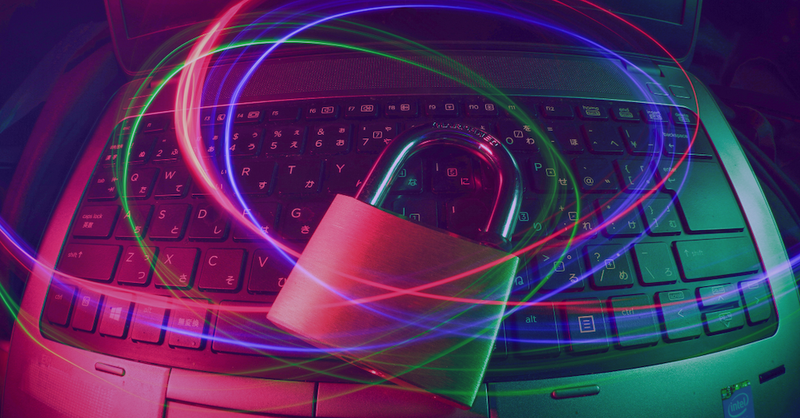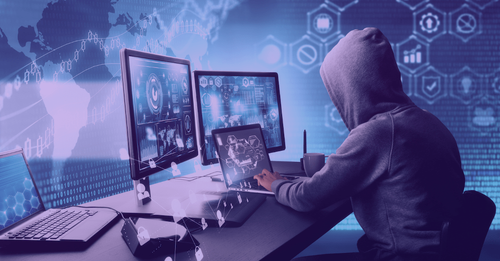Two things to take away from cyber security month
As we wrap up October, let's look at this year's main themes: cyber first aid and being cyber-secure at home.

With advancing technology and more sophisticated cyber-attacks - and more frequent ones - we also see a rise in research and investments in global cyber security. And this is not slowing down as activities resume and people return to their offices after the Covid-19 pandemic. A Research and Markets report projects that the global cybersecurity market size will grow 9.7% annually from 2021 to 2026, reaching USD 345.4bn by 2026, from USD 217.9bn in 2021.
The subject of data security keeps getting people's attention worldwide as we learn and face new threats. In the European Union, where issues like data privacy and cybersecurity have been on the table for a while, the bloc dedicates the entire month of October for activities to promote digital security.
As the coronavirus pandemic continues to affect our daily lives and test the resilience of home-based online security, the focus of this year's event was on first aid and how to be cyber secure at home. Incidentally, the motto for the European Cybersecurity Month 2021 is "Think Before U Click", which is one of the most basic yet effective ways of maintaining data security in your company.
Cyber first aid
With a catchy name, "cyber first aid" is a pretty simple concept: a set of tools and organisations to reach if you ever suffer a cyberattack. After all, being prepared also means being ready in case all else fails. So even if you have the most advanced tools for data security in companies, it's essential to know who to reach if the worst case scenario happens.
The European Cyber Security Month has an interactive map where members of the bloc can check the relevant authorities for cybersecurity in each country. In Ireland, for example, all incidents, including online shopping fraud, social media accounts hacked or similar issues, should be reported to the Garda. You can also subscribe to receive scam alerts and other relevant cybersecurity news on the Irish Reporting and Information Security Service website.
The United Kingdom's police have a National Fraud & Cyber Crime Reporting Centre where people can report fraud or cyber crime using an easy online reporting tool. The website also has 24/7 phone numbers for businesses, charities and other organisations to report a live cyber-attack. In the United States, the government has a Unified Message for Reporting to the Federal Government.
Be cyber-secure from home
The second central theme of the month was how to keep your home safe from cyber attacks. Starting with not clicking on suspicious links - which is one of the easiest and most common ways hackers can get into a home system, there are many other things that users can do to protect their homes and their businesses.
Here are five tips that the #CyberSecMonth brought to people's attention:
- Secure all your devices: make sure you use strong passwords and set up two-factor authentication. It's also essential to change the default password and network name on your router and modem.
- Check your apps: make sure you only download applications and software from trustworthy sources and check which permissions you are giving the apps before clicking "accept all".
- Review privacy settings: from time to time, see your account settings on social media and check what you want to share and with whom.
- Set automatic updates: make sure to keep your devices up to date on their software - it's common for cybercriminals to access devices that are outdated and insecure. Also, make sure you keep a backup of your files, especially those most important to you, somewhere separate.
- Keep your work and home devices separate: a good tip is to have separate devices for your work life and personal life, which helps to minimise losses. A budget friendly alternative is to have different user profiles for each device.
Even after cyber security month has come to a close, these small actions should be implemented and checked on often. The easiest (and one of the most common) ways for malware to reach you is through human error, whether by you clicking on an untrustworthy link or not updating your devices regularly. So don't be an easy target.
More from our blog
Unmasking Social Engineering Attacks: Types and Prevention Techniques
What you need to know to strengthen your human firewall and keep your data safe
How encryption can help the finance industry win the battle against cyberattacks
Why fully functional data-in-use encryption is THE tool to help financial institutions mitigate the costs of data breaches.
Why Cybersecurity must be a top priority in Healthcare
The healthcare industry is a target for cybercriminals. Here's how cybersecurity can help protect data - and lives.


